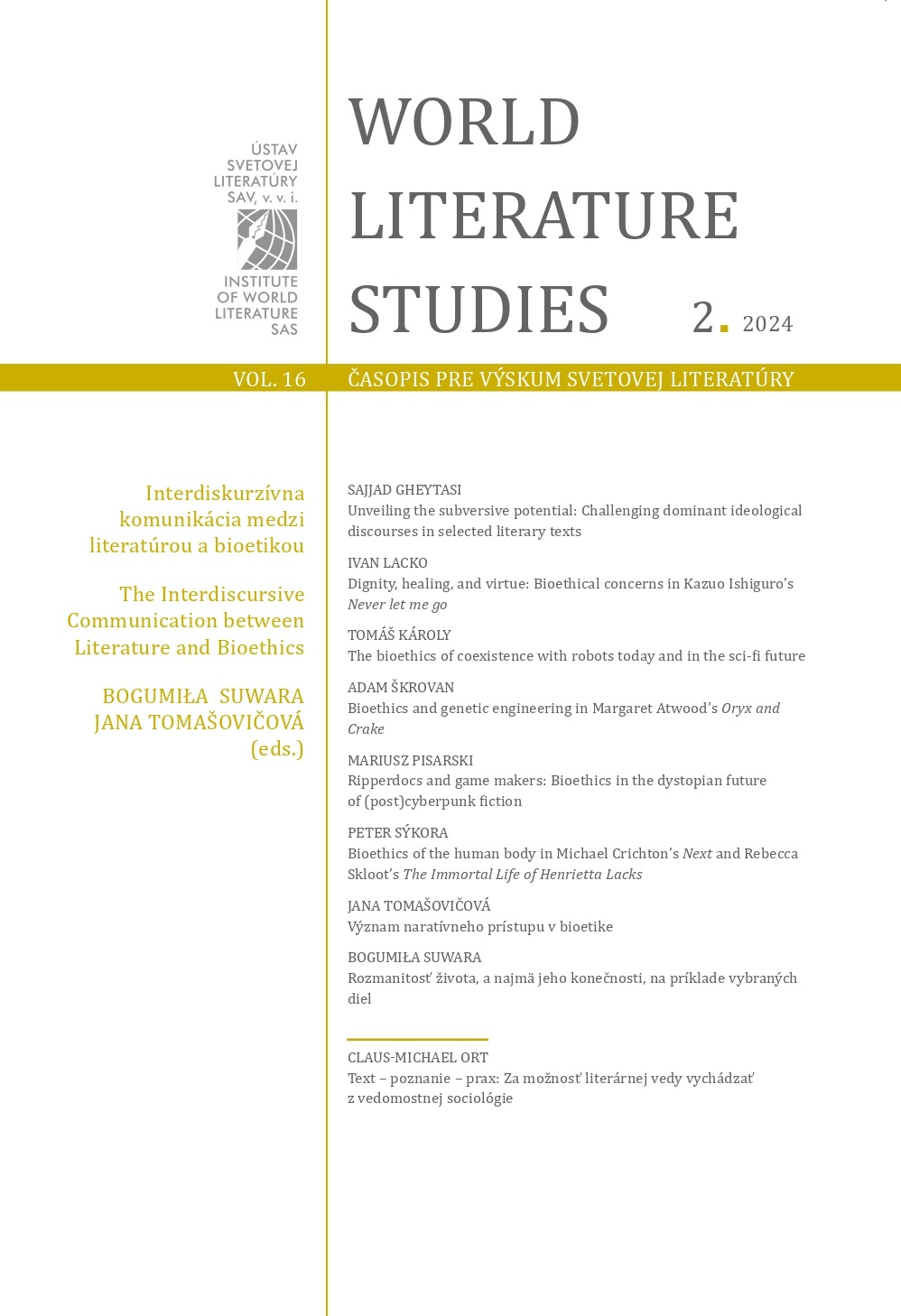Dignity, healing, and virtue: Bioethical concerns in Kazuo Ishiguro’s Never let me go
Dignity, healing, and virtue: Bioethical concerns in Kazuo Ishiguro’s Never let me go
Author(s): Ivan LackoSubject(s): Ethics / Practical Philosophy, Contemporary Philosophy, Theory of Literature, Philosophy of Law, British Literature, Sociology of Literature
Published by: SAV - Slovenská akadémia vied - Ústav svetovej literatúry
Keywords: Bioethics; Utilitarian approach; Virtue ethics; Cloning; Clone narratives
Summary/Abstract: The article aims to examine bioethical concerns presented in Kazuo Ishiguro’s 2005 novel Never Let Me Go, focusing on the lives of cloned beings who become organ donors for non-cloned humans. The analysis addresses such ethical implications of cloning and organ donation as dignity, healing, care, and virtue. Through the lens of utilitarian and virtue ethics, the analysis focuses on the novel’s portrayal of these characters, examining how these models function in the narrative and enhance its literary effect. Ishiguro’s text highlights some of the bioethical concerns surrounding clone characters in fiction. The novel questions whether clone characters are part of a social transformation or if they are part of the existing distinction between nature and artifact. The bioethical understanding of human dignity is emphasized, as it is intrinsic to every human being.
Journal: World Literature Studies
- Issue Year: 16/2024
- Issue No: 2
- Page Range: 20-30
- Page Count: 11
- Language: English

